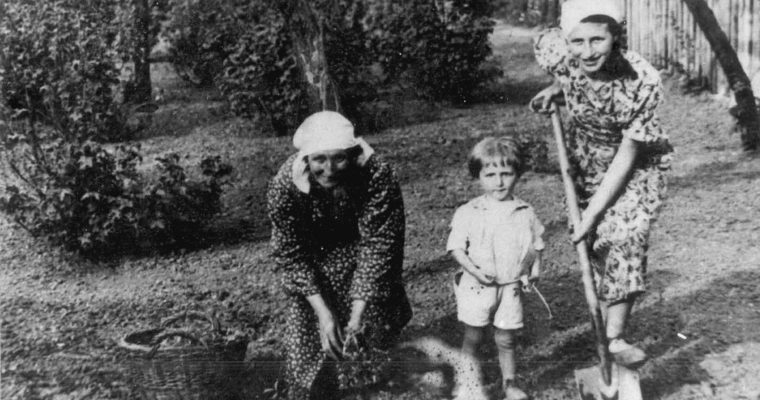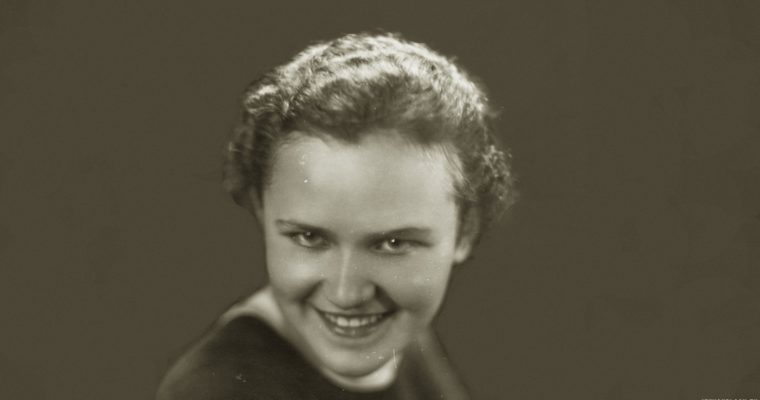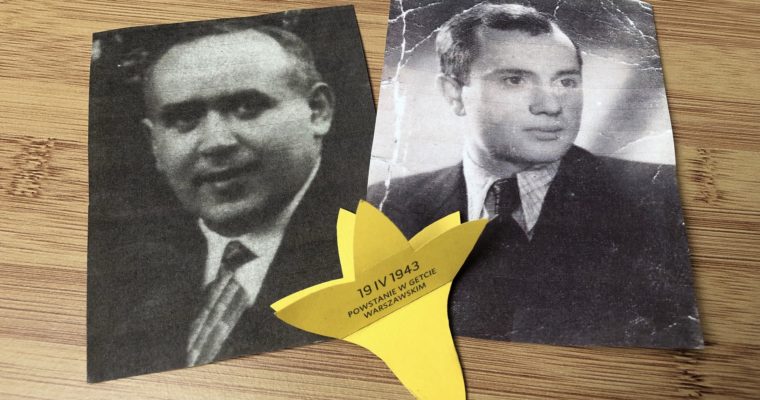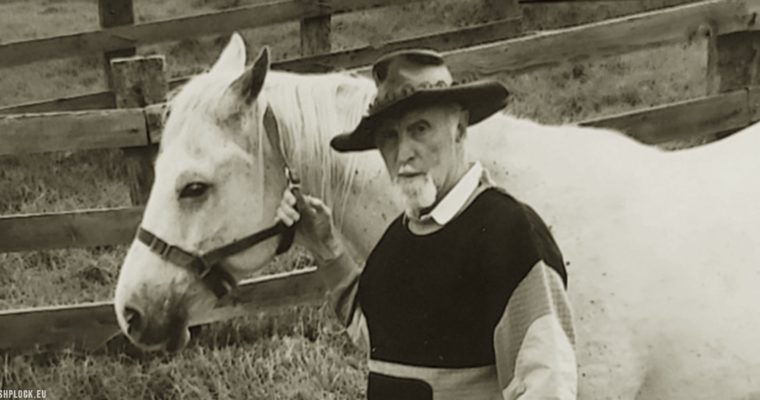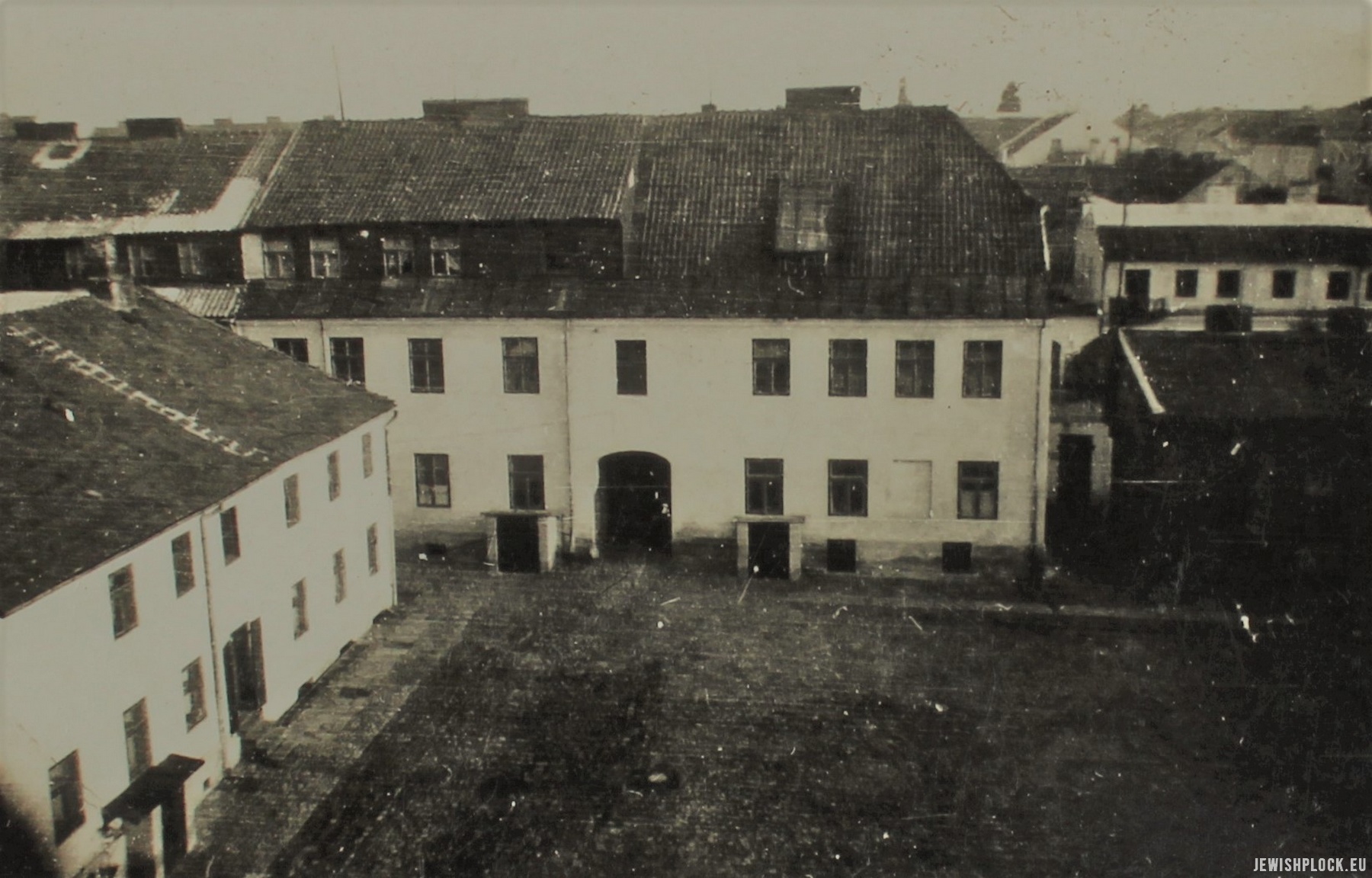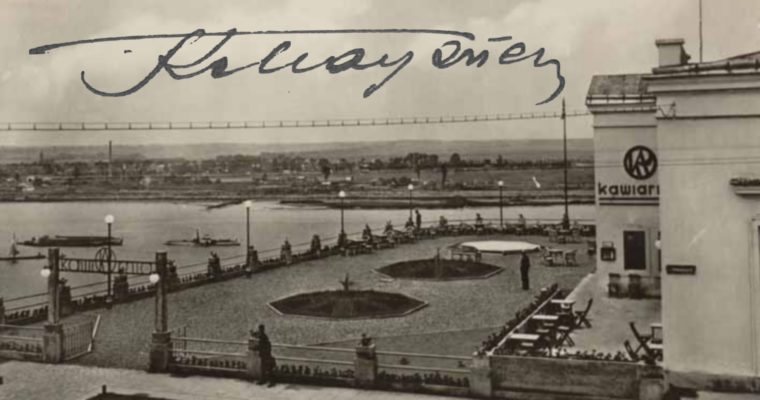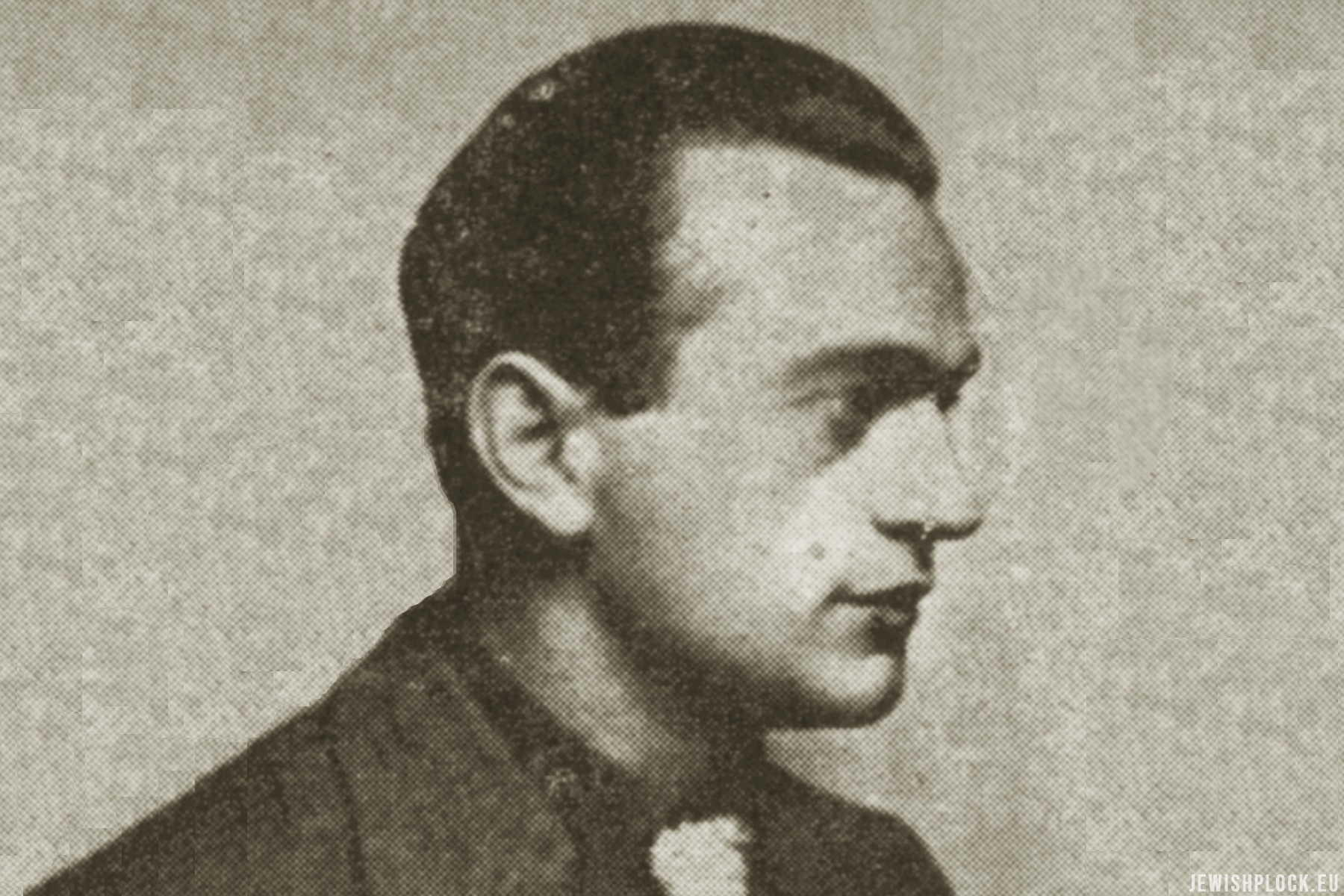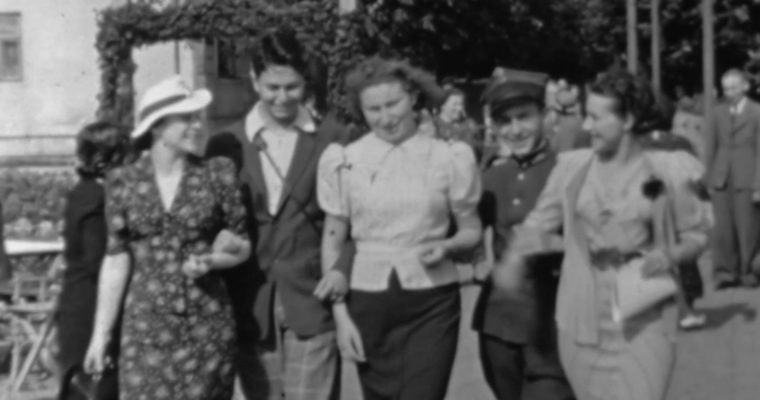Under the contract concluded on June 1, 1824 with the Municipal Office of the Town of Płock, the merchant Jakub Lewin Szenwic (born in 1789) received a perpetual lease of the square located at Nowa Street at that time (property 258 E) for an annual rent of 10 PLN. On this square, before 1827, he erected a brick house with one floor and a basement, covered with Dutch tiles. After his death, the property was inherited by his son Chaskiel Szenwic (1817-1889). By virtue of an official will of October 18/30, 1864, and following a request of September 20 / October 2, 1867 and 7/19 January 1870, he was registered as its owner. Before 1871, Chaskiel Szenwic erected a new brick front house: partly half-timbered, tiled, with two stories and a residential attic.
Since 1880, at the Chaskiel Szenwic house operated the Optician and Jewelery Company of Moritz Szenwic, who advertised it in the pages of “Korespondent Płocki”:
I hereby inform the Dear Audience that since January 1 this year. I have set up a repair workshop for watches, where I perform all repairs very quickly, at very affordable prices, and I have various new wall clocks to sell. I perform optical and all jewelery works 25% cheaper than larger jewelry workshops in Płock…
The next owner of the property was Tauba Itta Szenwic née Borensztejn, who purchased it from Chaskiel Szenwic for the amount of 12,000 rubles and by virtue of the act of September 29 / October 11, 1882 and the application of April 29, 1891 was registered as its owner. Tauba Itta, daughter of Hersz and Sura née Zdugman, was the daughter-in-law of Chaskiel Szenwic, wife of his son Manchajm (born in 1845) – a trader, owner of coal and wood store. At the beginning of 1893, Manchajm Szenwic opened a cooling drink manufacture at Szeroka Street.
In 1907, Manchajm and Tauba Itta Szenwic née Borensztejn bought a neighboring property at Tumska Street, mortgage number 258, for the sum of 598 rubles and 75 kopecks.
In 1909, at 1 Szeroka Street, the Russian authorities legalized the Bieker Chajlim Jewish Funeral Association, the founders of which were Jakub Szenwic, Izydor Wasserman, Chaskiel Perelgryc, Abram Fiszman, Manchajm Szenwic, Mordka Dancygier and Kalman Frenkiel.
After the death of Tauba Itta Szenwic, half of the property was acquired by Manchajm Szenwic, by virtue of pre-marriage intercourse of July 29, 1873, and the other half, in equal parts, became the property of Pessa Pelagia née Szenwice Rajcher (b. 1876), Ryfka Regina née Szenwice Wolman (b. 1886), Sura Stefania Szenwic (born in 1896), Hersz Herman Szenwic (born in 1877), Lejzor Eleazar vel Ludwik Louis Szenwic (born in 1888), Icek Izaak Jerzy Szenwic (born in 1879) and Chaja Fajga Helena Szenwic (born in 1881). The above-mentioned were registered as its owners pursuant to the protocol of closing the inheritance proceedings of October 8, 1920 and the application of May 27, 1921.
The property of the Szenwic family, including the property at Tumska St., was later purchased by Jan Trojanowski for the amount of 7,000,000 marks and, pursuant to the act of 16 August and the application of 17 August 1921, he was registered as its owner.
The list of sign boards prepared for 1929 lists 10 companies at 1 Szeroka Street: “Bar Europejski”, haberdashery shop of Stanisław Ciesielski, seed shop of Natan Graubard, the Schicht company, haberdashery shop of B. Rozental, clothes shop of L. Lichtman, engraving factory of L. Ejchelt, “Czesława” haberdashery company, haberdashery shop of J. Zelkowicz and smoked meat store of Jan Trojanowski, the property owner. According to data from 1937, this address included Jakub Purzycki’s hairdresser business, Konstanty Kowalewski’s restaurant and Chaskiel Kohn’s bookbinding workshop.
According to data from 1931, 76 people lived at 1 Szeroka Street. In the outbuilding, in which there were 6 apartments, the following people lived together with their families: Zofia Dybicz, Ludwika Dydecka, Jan Trojanowski, Hugon Gross, Blima Gruszka, Juda Głowiński, Moszek Magnes and Adam Kowalski; in the front house with 10 apartments: Sender Chmiel, Konstanty Kowalewski, Izrael Klinger, Pessa Krasiewicz, Henryk Siedliński, Luzer Lichtman, Chaim Kon, Lejzer Kugel, Pinkus Neuman, Paulin Więcławski and Izrael Finkelsztejn.
At the end of August 1939, just before the outbreak of World War II, 25 families lived at this address, including the family of Izrael Klinger, Juda Tyber, Luzer Lichtman, Chilel Kon, Luzer Kugel, Lejb Gruszka, Abram Cymbler, Izrael Kwiat, Szmul Kiper and Chaskiel Kon.
The property at 1 Kwiatka Street still belongs to the descendants of Jan Trojanowski.
